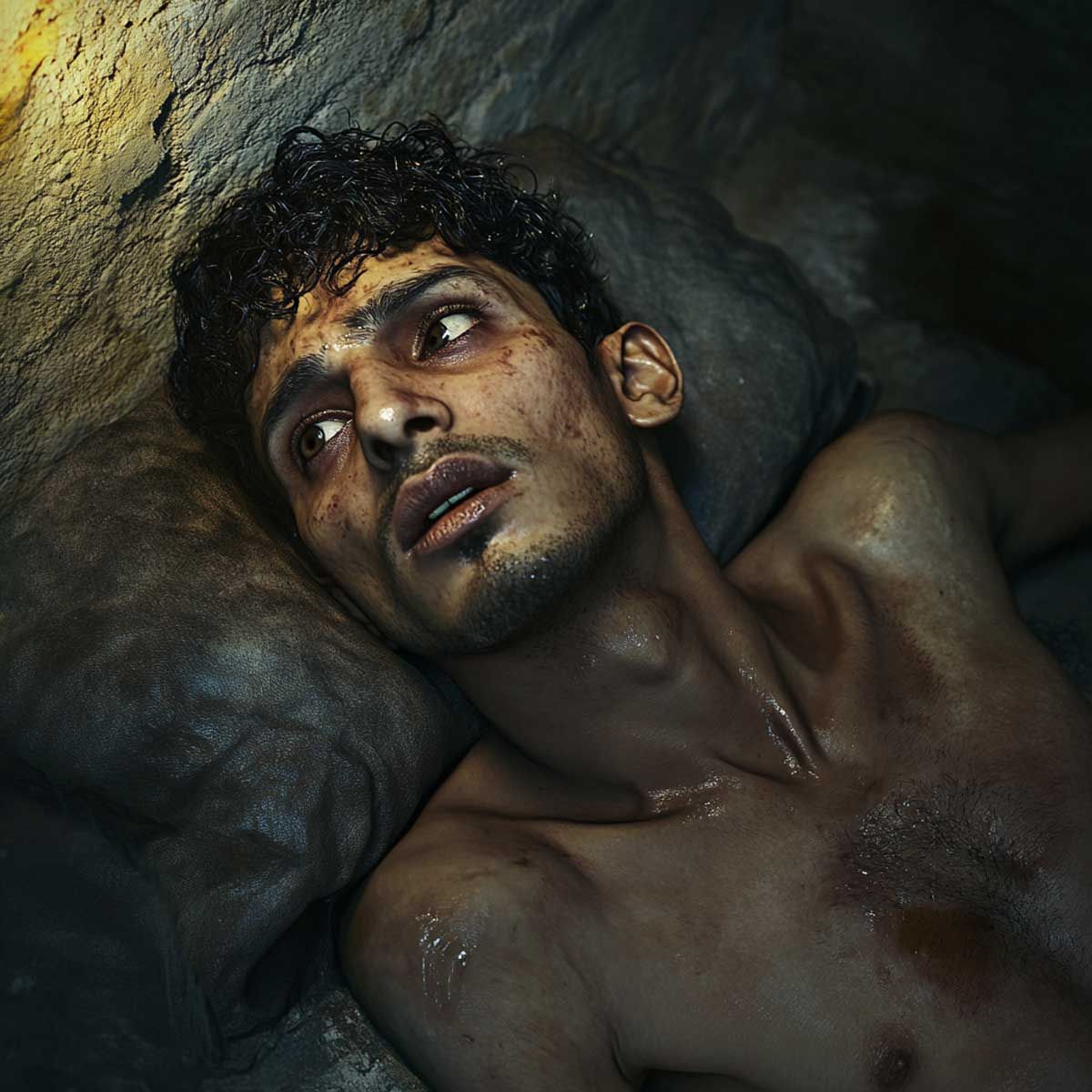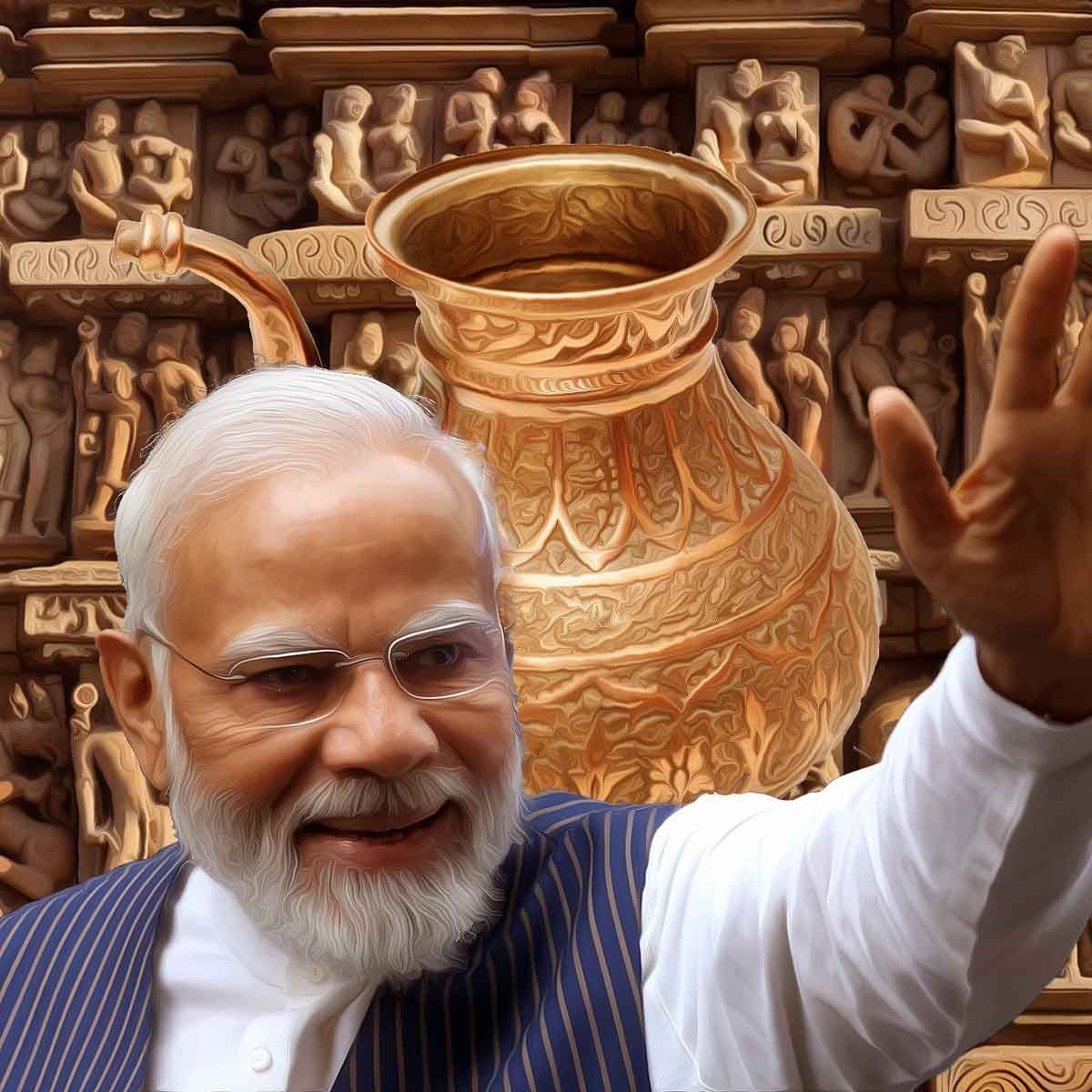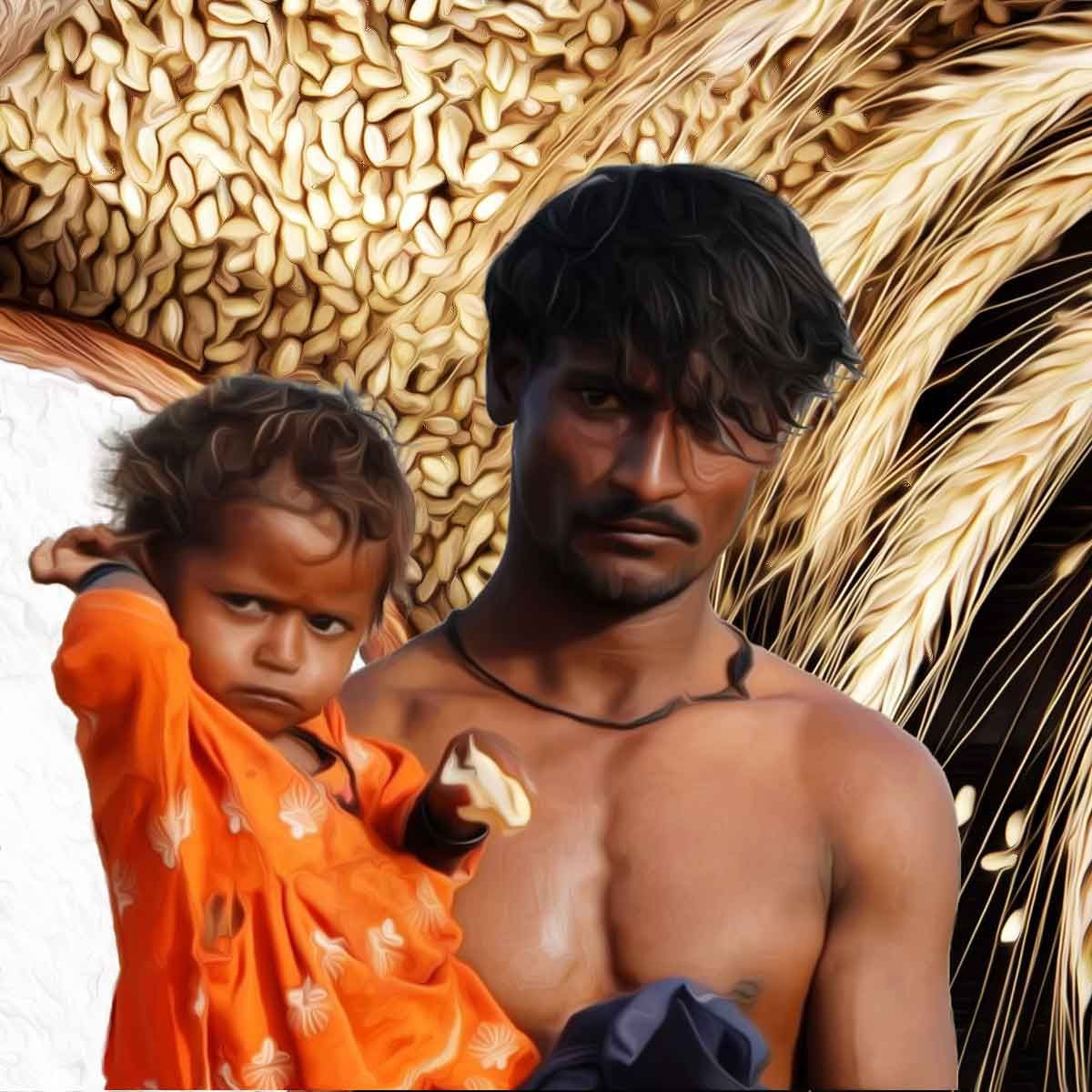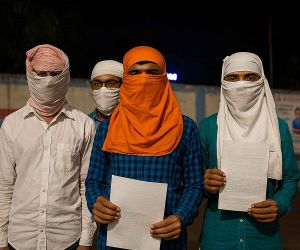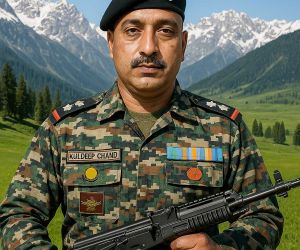MORE COVERAGE
Twitter Coverage
Satyaagrah
Written on
Satyaagrah
Written on
Satyaagrah
Written on
Satyaagrah
Written on
Satyaagrah
Written on
JOIN SATYAAGRAH SOCIAL MEDIA
"वालेकुम अस्सलाम": A Saudi doctor, Taleb Al-Abdulmohsen, drove into Magdeburg's Christmas market, killing 2, injuring 60, raising security concerns as 92.1% of crime hikes in Lower Saxony were linked to migrants under Merkel’s open-border policy
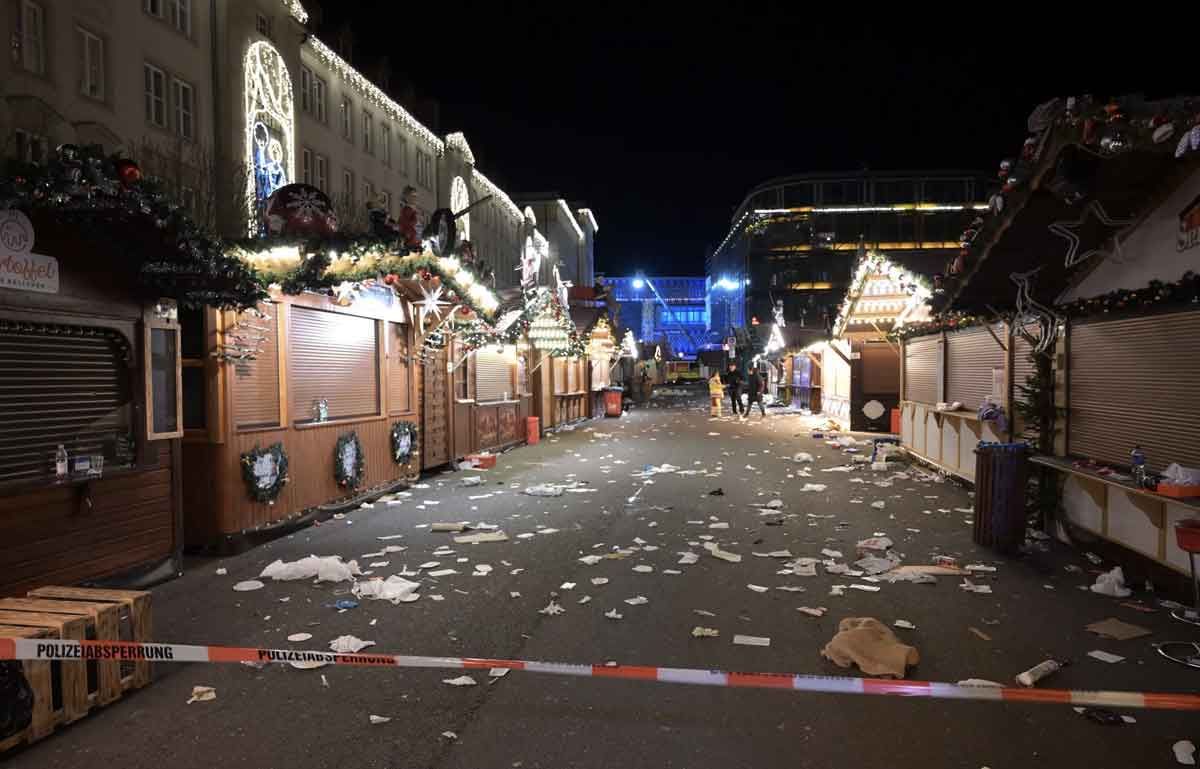
On the evening of Friday, December 20, a horrific incident unfolded at a bustling Christmas market in Magdeburg, located in the Saxony-Anhalt state of Germany. A Saudi Arabian doctor deliberately drove his car into a crowd of holiday shoppers, transforming a festive celebration into a scene of chaos and grief.
|
A vehicle rammed into the lively outdoor market at approximately 7 PM, killing at least two people and injuring 60 others in what authorities have described as a calculated attack. The tragic event left the city reeling, with holiday cheer replaced by shock and mourning. The driver was apprehended on the spot shortly after the car plowed into the crowded area. The market, filled with shoppers enjoying the weekend and the holiday spirit, became a tragic setting of loss and injury.
Verified footage released by the German news agency dpa captured the suspect’s arrest. In the video, the man is seen lying on a walkway in the middle of the road as a police officer, handgun drawn, shouts commands at him. Within moments, additional officers arrive, securing the suspect and bringing him into custody.
Authorities confirmed the loss of two lives—a toddler and an adult. As medical teams work tirelessly, the possibility of further fatalities looms large, with 15 victims reported to have sustained critical injuries. The magnitude of the attack left the city’s mayor visibly emotional, with the shocking act tarnishing what should have been a joyous, centuries-old tradition in Germany.
The suspect, identified as Taleb A., is a 50-year-old Saudi national who has lived in Germany since 2006. He was granted permanent residency in 2016 and has worked as a psychiatrist and psychotherapist in the city of Bernburg, located about 40 kilometers from Magdeburg. His professional background adds an additional layer of complexity to the tragedy, as he held a trusted position in the healthcare sector.
Tamara Zieschang, the interior minister for the Saxony-Anhalt state, confirmed the identity of the suspect during a press conference. Details of his life in Germany reveal that he had established a stable professional career and had seemingly integrated into German society. However, this deliberate act of violence has left many questioning the motivations behind the attack and its broader implications.
The accused, Taleb Al-Abdulmohsen, has lived in Germany for nearly two decades and held permanent residency since 2016. Authorities arrested him immediately following the attack at the scene of the crime. The devastating act left the city of Magdeburg in mourning, with the community reeling from the loss and injuries caused at what should have been a festive gathering.
Premier Reiner Haseloff addressed the incident, stating, “It is a catastrophe for the city of Magdeburg, for the state and for Germany in general…As things stand at the moment, we are talking about a lone offender, which means that there is no further danger to the city because we were able to arrest him.” His reassurance provided some comfort to residents fearful of ongoing threats.
|
According to Reuters, Saudi Arabian authorities had previously warned Germany about Taleb after he made radical statements on his X (formerly Twitter) account. Journalist Tim Röhn revealed that Taleb openly posted threats online, but no action was taken against him by the platform. One chilling tweet from the attacker read:
“I seriously expect to die this year. Reason: I will bring justice at any cost. And German authorities are impeding all peaceful pathways to justice. If you are a concerned German citizen, you should demand justice now. If you are not concerned, then ok but don’t complain later.”
The Foreign Ministry of Saudi Arabia swiftly condemned the attack, emphasizing its stance against terrorism. Meanwhile, police investigations are underway, with authorities confirming that no explosives were attached to the attacker’s vehicle. A search operation was also conducted at Taleb’s residence in Bernburg, a town near Magdeburg.
CCTV footage capturing the terrifying incident has since circulated online, showing the moment Taleb rammed his car into the crowded Christmas market. Eyewitness accounts described the chaos and panic as people tried to escape the speeding vehicle. Footage of the arrest also showed Taleb lying on the ground near a damaged black car as police secured the area.
Governor Reiner Haseloff reiterated during a press conference: “As things stand, he is a lone perpetrator, so that as far as we know, there is no further danger to the city.” He added, “Every human life that has fallen victim to this attack is a terrible tragedy and one human life too many.”
Reports from the local broadcaster MDR confirmed that Taleb had rented the car shortly before the attack. Although he displayed radical views online, investigators have so far found no evidence linking him to known Islamist groups. This attack brought back chilling memories of the 2016 tragedy in Berlin when a Tunisian refugee, Anis Amri, used a truck to kill 12 people at another Christmas market.
The violence took place in Magdeburg, a city of approximately 240,000 residents located west of Berlin, serving as the capital of Saxony-Anhalt. This tragic event comes eight years after another devastating attack in Germany, where an Islamic extremist drove a truck into a crowded Christmas market in Berlin, killing 13 people and injuring many more. That attacker was killed in a shootout in Italy just days later.
Christmas markets, a cherished part of German culture since the Middle Ages, hold deep significance in the country's holiday traditions. These markets have become symbolic of the festive season, with their popularity spreading throughout the Western world. In Berlin alone, over 100 markets opened in late November, filling the air with the delightful smells of mulled wine, roasted almonds, and bratwurst. Similarly, countless markets across Germany draw crowds seeking the warmth and joy of the holiday season.
Despite their cultural and economic importance, concerns about security have persisted. German Interior Minister Nancy Faeser had stated late last month that there were no concrete indications of any specific threats to Christmas markets this year but emphasized the need for vigilance. Tragically, the attack in Magdeburg shattered that sense of security.
The peaceful atmosphere of the market turned into chaos as sirens wailed, clashing with the festive decorations of stars and leafy garlands. Dorin Steffen, a Magdeburg resident, shared her harrowing experience with the German news agency dpa. She was attending a concert at a nearby church when the sound of sirens became deafening. “You had to assume that something terrible had happened,” she recounted, describing the event as “a dark day” for the city. Filled with sympathy for the victims, she expressed her hope that her own relatives, friends, and acquaintances were unharmed. “We are shaking,” Steffen said, echoing the collective grief and fear that spread through the community.
The impact of the attack resonated beyond Magdeburg, with Saxony-Anhalt’s Premier Reiner Haseloff describing it as a catastrophe not just for the city but for the state and the country. Flags were lowered to half-staff in Saxony-Anhalt as a mark of mourning, with plans for the federal government to follow suit. “It is really one of the worst things one can imagine, particularly in connection with what a Christmas market should bring,” Haseloff said, reflecting on the stark contrast between the attack and the festive spirit that should have prevailed.
Expressions of condolence poured in from national and international leaders. German Chancellor Olaf Scholz posted on X (formerly Twitter): “My thoughts are with the victims and their relatives. We stand beside them and beside the people of Magdeburg.” NATO’s Secretary-General and the European Commission’s President also conveyed their sympathies through the platform.
The grief-stricken Mayor of Magdeburg, Simone Borris, nearly in tears, announced plans for a memorial service at the city’s cathedral on Saturday. Her emotional response underscored the weight of the tragedy on the city’s leadership and residents.
In a show of solidarity, even the world of sports paused to honor the victims. Following a soccer match on Friday evening between Bayern Munich and Leipzig, Bayern Munich CEO Jan-Christian Dreesen asked fans at the stadium to observe a minute of silence.
|
Germany Christmas Market: Eyewitness Accounts of the Attack
The horrifying attack at the Magdeburg Christmas market left eyewitnesses in shock, describing scenes of chaos and devastation. The vehicle, a black car, sped through a crowded section of the market for nearly 400 meters, an area beautifully adorned with fairy-tale scenes. This part of the market was bustling with families and children, making the tragedy even more harrowing.
A witness shared with the Mitteldeutsche Zeitung, “He drove deliberately into the section of the Christmas market decked out with scenes from fairytales.” This deliberate targeting of an area filled with joy and laughter turned it into a nightmare.
Nadine, a 32-year-old visitor, recounted her terrifying experience to the Bild newspaper: “I was holding my boyfriend when the black car struck. He was hit and pulled away from my side. It was terrible.” Her boyfriend reportedly sustained head and leg injuries in the incident, a grim reminder of the personal toll the attack has taken on many.
Lars Frohmüller, a journalist with MDR who arrived shortly after the attack, described the chaotic scene: “Everywhere there were ambulances, police, and many firefighters. This was a real chaotic situation. We saw blood on the floor, people sitting beside each other with golden and silver foils around them, and many doctors trying to keep people warm and help with their injuries.” His account paints a vivid picture of the aftermath, where emergency responders worked tirelessly to assist the injured amid the cries and confusion.
|
Germany Christmas Market: Emergency Response and Investigation
Emergency personnel responded swiftly to the scene, treating the injured and comforting those in shock. Onlookers, still reeling from the events, described hearing heart-wrenching cries and screams. One food stall operator likened the aftermath to a “war zone,” a chilling comparison that underscored the severity of the attack.
As investigations continue, authorities are yet to determine the motive behind the attack. Saudi Arabia’s foreign ministry issued a statement condemning the incident, expressing solidarity with the victims and their families. The statement reiterated the kingdom’s rejection of violence but refrained from addressing the suspect directly.
This tragic event has drawn comparisons to a similar incident in Berlin in 2016, where an Islamist extremist drove a truck into a Christmas market, killing 12 people and injuring many others. In light of these parallels, the Magdeburg attack has reignited fears about public safety at crowded events. German Interior Minister Nancy Faeser had called for heightened vigilance at public events, particularly Christmas markets, just last month. At the time, she noted there were no concrete threats, but the recent incident has cast doubt on the effectiveness of existing precautions.
Adding to the growing unease, earlier this year, a knife attack in Solingen claimed the lives of three people. The attacker, a 26-year-old Syrian national, was later found to have ties to the Islamic State group. This incident prompted stricter discussions on weapon regulations in public spaces and raised questions about Germany’s asylum policies and public safety measures.
The Magdeburg tragedy has overshadowed the festive season, leaving families grieving and the community grappling with a sense of shock and vulnerability. As the investigation continues, there are renewed calls across Germany for more stringent measures to ensure security at public gatherings, aiming to prevent such devastating events in the future.
|
How Germany Exacerbated the Refugee Crisis
At the peak of the European migrant crisis, German Chancellor Angela Merkel made a bold declaration, stating that Germany had the “economic strength” to accommodate refugees. She famously asserted that there was no upper limit to the number of refugees the country could take in. However, this open-border stance soon drew sharp criticism, particularly for its lack of consultation with Germany’s federal states.
One of Merkel’s critics was Horst Seehofer, the leader of the Christian Social Union in Bavaria (CSU). He criticized the Chancellor’s policy, highlighting that 30% of all refugees arriving in Germany were from Syria. Seehofer urged the European Union to adopt stricter measures, including cutting funding to member states that refused to comply with mandatory refugee quotas.
The repercussions of these liberal policies began to unfold. A German study in 2018 revealed that the influx of migrants had a direct correlation with an increase in violent crimes, particularly in Lower Saxony, Germany’s fourth-most-populous state. Between 2007 and 2014, the state experienced a 21.9% decline in violent crimes. However, this trend reversed with a 10.4% rise in such crimes by the end of 2016, coinciding with the significant influx of migrants.
Lower Saxony housed approximately 7.5 lakh non-citizens, but by the end of 2016, only 1.5 lakh migrants had applied for asylum. Strikingly, 92.1% of the total increase in crimes during this period was attributed to incoming migrants.
A report by Bloomberg offered further insights into this disturbing trend:
“Between 2014 and 2016, the share of solved violent crimes attributed to asylum seekers increased to 13.3 percent from 4.3 percent — a disproportionately high share compared with the state’s foreign population…The breakdown of specific crimes committed by the asylum seekers is equally thought-provoking. In some 91 percent of murders and three-quarters of cases involving grave bodily damage, the victims are other migrants.”
Merkel’s open-border policies made Germany the most sought-after destination for refugees. Between January and December 2015, 1.091 million asylum-seekers registered with the German government for distribution across federal states. However, the system quickly showed cracks. By February 2016, the government admitted to losing track of 13% of the asylum seekers. Many migrants failed to report to their assigned accommodations, instead migrating to other European countries or remaining in Germany illegally.
The societal impact of these policies also became evident in individual cases. In 2016, a German politician named Selin Gören became a symbol of the left-liberal indoctrination that dominated public discourse at the time. She was sexually assaulted by three men in a playground at night and later revealed that the perpetrators spoke Arabic/Farsi. However, Gören initially lied about the attackers’ racial identity, fearing that the truth might stoke hatred against migrants. Her reluctance to acknowledge the facts highlighted the contentious environment surrounding refugee policies in Germany.
The cost of Germany’s open-border policies became increasingly apparent as crime rates rose and social tensions escalated. What began as an attempt to showcase economic strength and humanitarian values resulted in widespread challenges, leaving the country grappling with the long-term consequences of its liberal refugee stance.
 |
 Support Us
Support Us
Satyagraha was born from the heart of our land, with an undying aim to unveil the true essence of Bharat. It seeks to illuminate the hidden tales of our valiant freedom fighters and the rich chronicles that haven't yet sung their complete melody in the mainstream.
While platforms like NDTV and 'The Wire' effortlessly garner funds under the banner of safeguarding democracy, we at Satyagraha walk a different path. Our strength and resonance come from you. In this journey to weave a stronger Bharat, every little contribution amplifies our voice. Let's come together, contribute as you can, and champion the true spirit of our nation.
 |  |  |
| ICICI Bank of Satyaagrah | Razorpay Bank of Satyaagrah | PayPal Bank of Satyaagrah - For International Payments |
If all above doesn't work, then try the LINK below:
Please share the article on other platforms
DISCLAIMER: The author is solely responsible for the views expressed in this article. The author carries the responsibility for citing and/or licensing of images utilized within the text. The website also frequently uses non-commercial images for representational purposes only in line with the article. We are not responsible for the authenticity of such images. If some images have a copyright issue, we request the person/entity to contact us at satyaagrahindia@gmail.com and we will take the necessary actions to resolve the issue.
Related Articles
- Aided by green communists, the Talibanization of Kerala government officials happening at a frightening pace: Marxist leaders are not just silent, but encouraging such trends for Islamist appeasement
- Five LeT terrorists planned bomb blast at Darbhanga railway station, had visited Pakistan several times: NIA files charge-sheets
- History-sheeter Shamsher Khan murders friend Shivdatt, suspected of an affair with his live-in partner Asha Thakur, murder comes to light after 8 months: MP
- Aksar Ali's family tried to kidnap him right before he was going to do a press conference about leaving Islam: Apostasy, abandonment of Islam by a Muslim, was punishable by death
- "Europeans will succumb to Islam": Former top German spy Hans-Georg Maaßen exposes an anti-German agenda, unveiling a disturbing prophecy of Muslim majority in Europe by 2200, raising questions about democracy and cultural transformation
- ‘Tricked into religious conversion for marriage and then father in law demanded sex’, J&K woman reveals her ordeal
- Darul Uloom famed Deoband to have ATS training center: CM Yogi Adityanath to lay the foundation on the 4th of Jan
- Let’s remember Karsevaks this Diwali, who laid down their lives for Ram Temple: Ayodhya massacre of Hindu devotees, 2 Nov 1990
- 'Why don't you kill Hindus' - Pakistani teachers teaches to Muslim students, one journalist's ordeal
- Gujarat MLA Jignesh Mevani made the Pushpa ‘Jhukega Nahi’ signature move after being re-arrested by the Assam Police: Jahangirpuri accused Ansar also had made the same move
- In another shocker, Supreme Court quotes 'every sinner has a future' and commutes death sentence of Mohd Firoz for rape & murder of 4-year-old girl: Child brutally assaulted, two teeth broken while smothering after rape
- Narasimha Anjaneyar temple demolished in Tamil Nadu despite devotees best efforts to save it, places of worship of other religions are spared
- Introduction - Understanding Islam through Hadis - Religious Faith or Fanaticism
- Sadiq from Garhwal posing as Ratan Tyagi befriends a 13-year-old minor Hindu girl, threatened with her intimate pictures, assaulted sexually, and raped her: Haridwar police arrested accused after family files complaint
- No evidence to tie Dinesh Yadav to violence, intention assumed based on him being Hindu: Anti-Hindu riots by Muslim community that shook the capital city of India and analysis of the conviction




